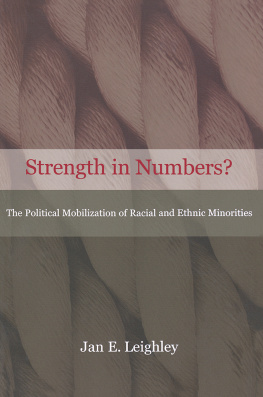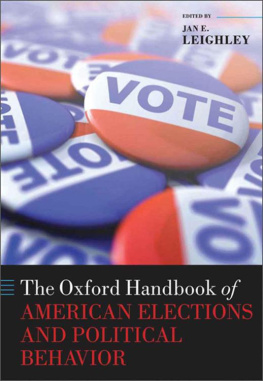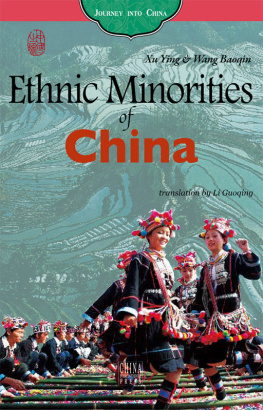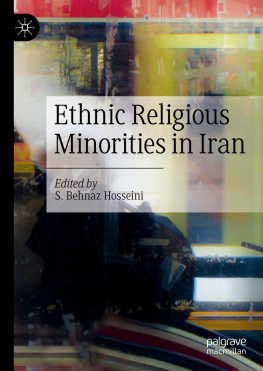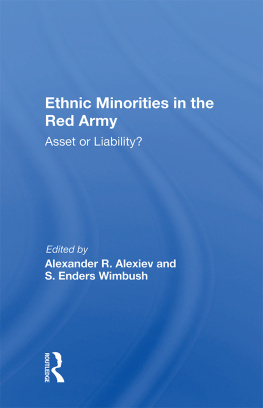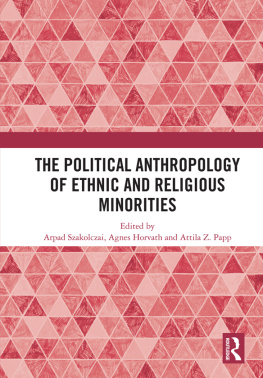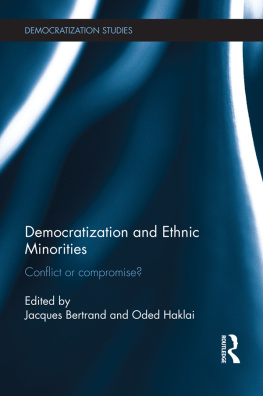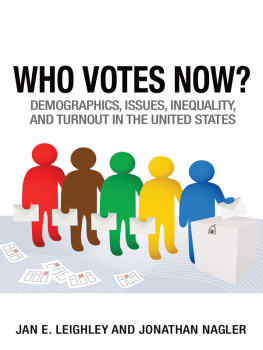Copyright 2001 by Princeton University Press
Published by Princeton University Press, 41 William Street,
Princeton, New Jersey 08540
In the United Kingdom: Princeton University Press,
3 Market Place, Woodstock, Oxfordshire 0X20 1SY
All Rights Reserved
Library of Congress Cataloging-in-Publication Data
Leighley, Jan E., 1960-
Strength in numbers? : the political mobilization of racial and ethnic minorities /
Jan E. Leighley.
p. cm.
Includes bibliographical references and index.
ISBN 0-691-08670-2ISBN 0-691-08671-0 (pbk.)
1. MinoritiesUnited StatesPolitical activity. 2. Political participationUnited
States. I. Title.
E184.Al L43 2001
323'.042'08900973dc21 2001016379
British Library Cataloging-in-Publication Data is available
www.pup.princeton.edu
eISBN: 978-0-691-22397-1
R0
PREFACE
A LTHOUGH presidential nominating conventions have always been spectacles of one sort or another, the 2000 Republican and Democratic National Conventions were replete with symbols of racial and ethnic diversity. With a strong national economy and a fairly popular president, it is perhaps not surprising that the parties shifted their symbolic focus from economics and national defense to the faces of African-Americans, Latinos and Asian-Americansamong otherson national television. The post-convention debate, of course, was to what extent the abstract symbols and claims of inclusion, integration, and incorporation made by both parties would be translated into concrete federal policies. This debate is surely one that will continue for years to come. But that we are engaged in it at this moment is indeed hopeful.
This book, too, focuses on the nature of inclusion, integration, and incorporationbut with respect to mass political behavior. I hope to engage a broad spectrum of scholars to look more carefully at how political institutions structure political behaviorand how an increasingly diverse electorate is likely to respond to these efforts. Although this is but one very narrow slice of the issues raised by the political conventions this year, it is nonetheless an important one. Thus, I hope that scholars of political participation, voter turnout, African-American politics, Latino politics, and political parties find this work valuable as an extension of their own.
The intellectual debts that I have accumulated during my career are many. But I would like to make special note of three mentors who have influenced me beyond the scope of this book: John Sprague, Bob Salisbury, and Jewel Prestage. Johns graduate seminars at Washington University were always memorablein several dimensionsbut what has influenced me the most is his passion for the work that he does and the life that he leads. When I was first beginning this project, Bob gave me some simple advice: if you are going to write a book, make it a really good one. Jewel, whom I met only a few short years ago, has, in her own very elegant way, tutored me in the politics of race and gender. For this passion, this wisdom, this grace, I am indebted.
I would like to acknowledge the support and assistance of numerous colleagues and institutions over the past few years. Sidney Verba, Kay Schlozman, and Henry Brady were kind enough to provide me with data from their Citizen Participation Study, which serves as the basis of this project. This, as well as their comments at numerous panels at the Midwest and APSA meetings, have meant a great deal to me.
Funding for additional data collection and writing time came from the Department of Political Science, the Bush School of Government and Public Service, the Center for Presidential Studies, the Center for Public Leadership, and the Race and Ethnic Studies Institute at Texas A&M University. I would like to thank Charlie Johnson, Chuck Hermann, George Edwards, Arnie Vedlitz, and Mitch Rice for their leadership of these academic units and for their support of my work.
Colleagues at Texas A&M University, including Kim Hill, George Edwards, Jon Bond, and Ken Meier, have provided thoughtful comments on various drafts of these chapters as have Michael Alvarez, Peggy Conway, Louis DeSipio, Luis Fraga, Rodney Hero, Paula McClain, Gary Segura, Joe Stewart, and Jerry Wright, among others too numerous to list. Jonathan Nagler deserves a special thank-you for his encouragement along the way (which was sprinkled with insightful observations about book publishing) and for detailed comments on more than one draft of the manuscript.
I would also like to express my appreciation to graduate students who ably assisted in data collection and analysis; this includes: Whitney Grace, Patrick Ellcessor, Stacy Ulbig, Patricia Garcia, Alesha Doan, and Abby Lorenz.
While the professional obligations are numerous, I should note that it is my family who has had to live with this project for more years than anyoneincluding mewould have preferred. I thank both the Leighleys and the Johnsons, especially James and Ted, for encouragement, patience, and good humor, and remind them that they really neednt read one more word in this book!
Most important, I would like to thank my husband, Rick Johnson, for the professional and personal sacrifices he has made for my career and this book in particular. His confidence in me has never wavered. His first priority has always been to see that I had enough time to get my work done; his second to make sure that I played hard, too. Recently he asked me, Will there ever be a time in your career when you dont work in the evenings? There will be, sweetheartand it will be spent with you.
STRENGTH IN NUMBERS?
Chapter One
RACE, CLASS, AND POLITICAL PARTICIPATION: THE ARGUMENT
O NE of the striking features of political life in the United States at the beginning of the twenty-first century is that racial and ethnic minorities are becoming political majorities. California, Florida, New York, and Texas project that whites will be racial minorities in their states within decades, while other states immigrant populations have increased substantially in selected communities. Whether potential or realized, these demographic changes have seemingly changed the dynamics of national, state, and local politics.
Political analysts and commentators offer decidedly mixed views of the political consequences of these changes. To some, it is inevitable that this diversity will be embraced by political and social institutions, as well as citizens. This positive response to diversity will thus result in greater integration and, ultimately, a society in which color is irrelevant. Others are far less positive, anticipating that racial/ethnic diversity will threaten Anglos as well as minorities and lead to heightened political conflict.
These predictions, however, are typically based on anecdotal accounts of dramatic or unusual cases of racial/ethnic integration or conflict. For example, the Rodney King incident in Los Angeleswhen protests and rioting erupted after police officers accused of brutality against King (an African-American) were acquitted of criminal chargesis often used as the specter of an uncontrollable and divisive racial politics of the twenty-first centuiy.

